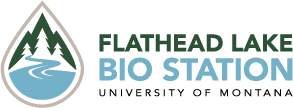Monitoring Montana Waters and the Montana Pesticide Stewardship Partnership Program recently hosted a Water Quality Awareness Evening event in partnership with the Montana Audubon Center in Billings, Montana. Montana Audubon Center focuses on environmental stewardship and community involvement. The Center is located only minutes from downtown Billings on 54 acres of restored gravel pit along the Yellowstone River. The former gravel mine left behind three ponds, now serving as wildlife habitat and a welcoming place for community recreation and educational programming.
The Montana Audubon Center was a beautiful location to host our educational programming event which featured two 30-minute presentations covering water quality basics, the importance of volunteer water quality monitoring, the difference between nonpoint and point source pollution, and ways community members can get involved in monitoring and reducing nonpoint source pollution. In between the two presentations, attendees had the opportunity to visit two of the ponds and participate in hands-on sampling. At the first station, participants sorted macroinvertebrates and learned how macroinvertebrates are used as bioindicators of water quality conditions. They were also able to use kick nets to learn about protocols and collect macroinvertebrates. At the second station, participants had a chance to collect unfiltered and filtered grab samples. They learned the Standard Operating Procedures associated with collecting chemical samples for laboratory analysis. This event was a great opportunity for us to raise awareness about sources of pollution, distribute education materials, and increase community engagement in volunteer water monitoring.
It’s really important to remember that when we protect our waters, we protect aquatic insects, fish, birds, and entire ecosystems that they support. We’re very grateful that we had the opportunity to host this event and expand our reach to a new community in eastern Montana. This event was made possible thanks to a mini grant which was awarded to the Flathead Lake Biological Station and Montana Audubon Center by the Montana Association of Conservation Districts (MACD). MACD offers mini grants up to $4,000 to help fund local education and outreach efforts that address nonpoint source water quality issues. Funding for these mini grants is made available through the Montana Department of Environmental Quality’s federally funded 319 program.





